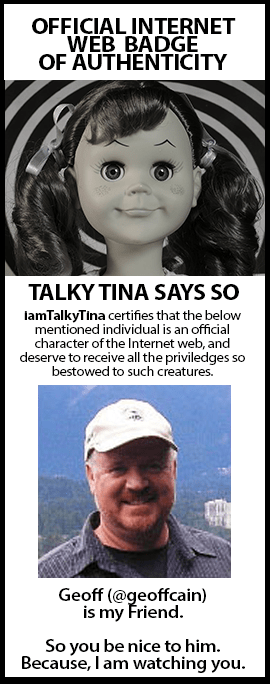Title: Building a community of learners online via discussions (yes, its possible)
These are some brief notes from a presentation I went to at the Northwest eLearn Conference. My usual disclaimer: the rambling nature of my notes represents my interests and abilities, not those of the presenters, who were just great!
Description
On the final evaluations for your course, do you see, “the discussions were a waste of time” or “the discussions were awesome, I learned a lot!” In this session, questioning techniques, rubrics, and online tools will be shared for better student discussion engagement and instructor management. A fish-bowl-style dialogue will involve the audience to crowdsource additional tips and strategies.
Presenters
Debra Spielmaker
Utah State University
Professor
https://aste.usu.edu/directory/faculty/debra-spielmaker
Debra Spielmaker is a Professor at Utah State University in the School of Applied Sciences, Technology, and Education. Dr. Spielmaker serves as the Graduate Program Director for the School, and teaches online graduate courses related to educational research and Career and Technical Education (CTE). Debra is also the team leader for the National Center for Agricultural Literacy and conducts research in this area along with STEM, CTE, and project-based learning.
Amy Spielmaker
Western Oregon University
Oregon
akspiel.com
Amy Spielmaker works in the College of Education at Western Oregon University where she teaches instructional design, develops marketing materials, oversees digital media production, develops and maintains all college websites, and assists faculty with curriculum development and creating engaging online classes. Amy also does freelance web and instructional design.
Notes
We looked at example of bad discussion questions.
Good prompts require critical thinking, relates to student experience, immediately applicable and have many responses. Good prompts sets up conflict or cognitive distance.
They used Bloom’s Taxonomy to help develop discussion questions.
50 questions to help students think about what they think.
Common goals: engage with the content, participate, learn from one another’s work, and feel connected.
Using the discussions as the main level of engagement has issues. It violates UDL principles. You need to assess with a wider range of learning modalities. Some problems:
- Confusing sharing work with “what did you learn?”
- Requiring peer replies – this forces the community and is not organic community.
- Believing in spontaneous generation – “…part of the problem is treating discussion as an end, rather than a means.” (Troy Hicks)
Debra seems to like these techniques and use them to provide deeper learning in the discussion forums.
Alternative discussion methods text/audio /video. Unless you have a good reason, you should let students use multimodes for assessment. They can be
- voluntary – you can record meetings for those who don’t come
- synchronous
- panel – bring in guest speakers (experts, writers, etc.)
- anonymous
Specify the levels of communication:
- Formality
- Netiquette
- Quality and quantity
- Accepted media
- Citation rules
- Participation and peer replies
- Grading
- Due dates
Debra staggers the due dates to give everyone a chance to respond to the other students: main post on Thurs. and the first reply is due on Fri. and the final response on Sun.
Streamline feedback
- Make it personal. Use a generic comment with simple statement substitutions.
- Tool tip: Awesome ScreenShot
- Do a weekly reflection
Question: Do you participate as an instructor in the discussion forums? Debra: monitor but intervenes. These are grad students.
Ask students
Ask what they like or don’t like about discussions?
Alternatives to discussions
- Case studies
- Concept maps
- interview
- infographic
- Create/Design
Ideas
- Prezi
- Padlet
- Flipgrid
- Twitter/Tweetdeck
- Slack
- PowToon
- Adobe Spark
- G Suite Apps
- Zoom
- Edpuzzle
- HP5
Really interesting technique – ask a broad topic question about the subject at the beginning of the class and then ask the students to answer the same question at the end.
In large classes, have students lead group discussions.




